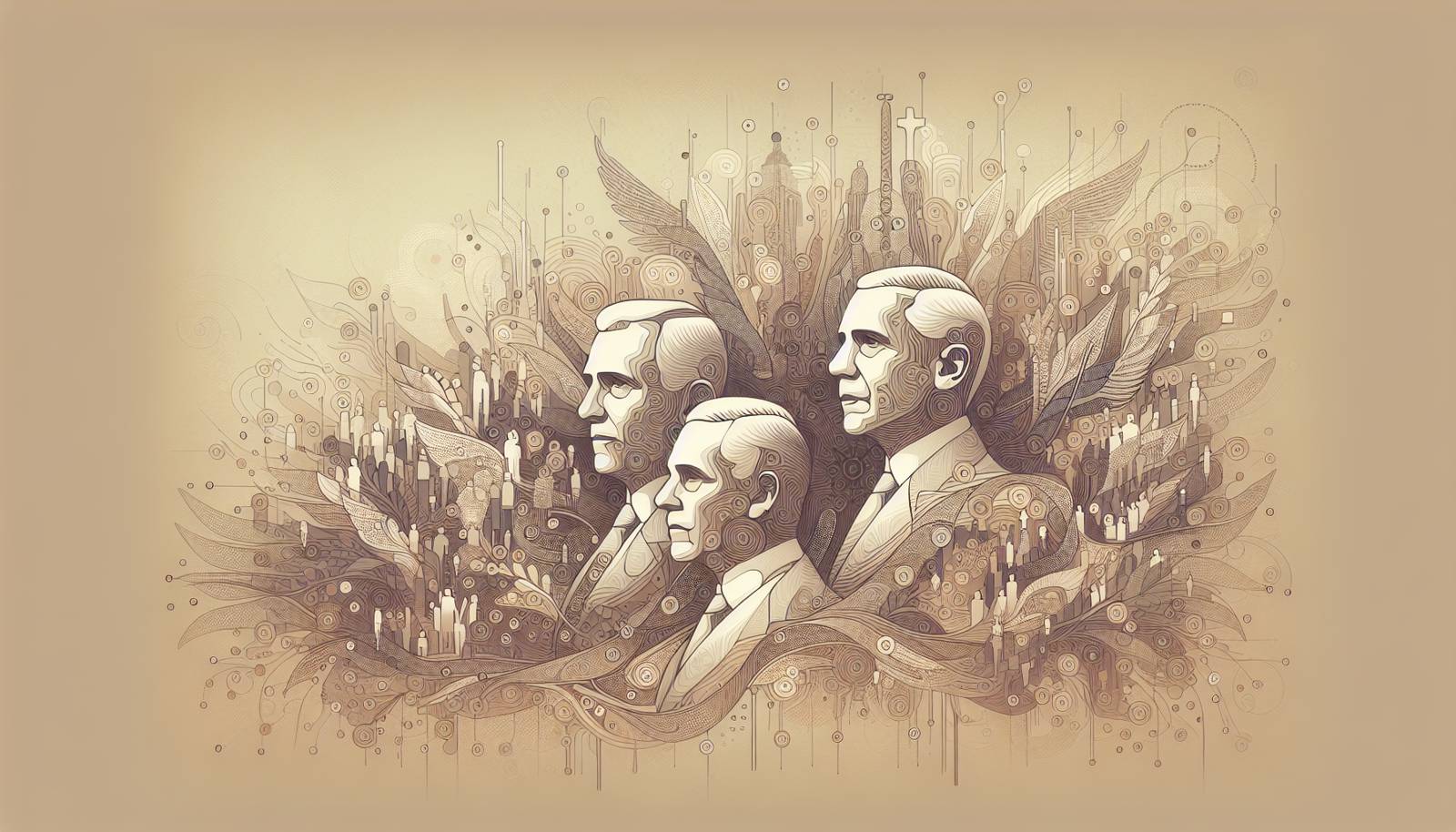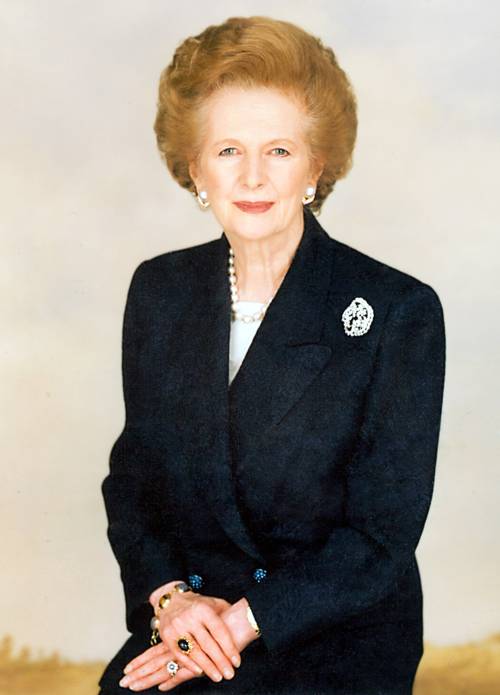
FAQ About Margaret Thatcher

Who was Margaret Thatcher?
Margaret Thatcher was the first female Prime Minister of the United Kingdom, serving from 1979 to 1990. She was the leader of the Conservative Party and known for her strong conservative policies and leadership style.

What were Margaret Thatcher's significant policies as Prime Minister?
Margaret Thatcher implemented various significant policies, including privatization of state-owned businesses, reducing the power of trade unions, cutting taxes, and emphasizing deregulation to foster economic growth. Her economic policies are often referred to as 'Thatcherism.'

Why is Margaret Thatcher referred to as the 'Iron Lady'?
Margaret Thatcher was nicknamed the 'Iron Lady' by a Soviet journalist due to her strong and uncompromising leadership style. The term encapsulated her firm approach to politics and her strong stance against the Soviet Union during the Cold War.

What was Margaret Thatcher's role in the Falklands War?
Margaret Thatcher played a crucial role in the Falklands War by decisively sending British forces to reclaim the Falkland Islands after Argentina invaded them in 1982. Her leadership during the conflict bolstered her popularity and demonstrated her commitment to defending British interests.

How did Margaret Thatcher impact the British economy?
Margaret Thatcher significantly impacted the British economy through her free-market policies, which included widespread privatization and reducing the influence of labor unions. While her policies led to economic growth and reduced inflation, they also resulted in increased unemployment and social unrest in some areas.

What was the Poll Tax and why was it controversial?
The Poll Tax, officially known as the Community Charge, was a tax system implemented by Margaret Thatcher's government. It was controversial because it charged individuals the same amount regardless of income or property value, leading to widespread protests and contributing to her declining popularity.

When did Margaret Thatcher resign and why?
Margaret Thatcher resigned on November 28, 1990, after losing support within her own Conservative Party. Her controversial policies, such as the Poll Tax, and internal party divisions led to a leadership challenge, prompting her decision to step down.

How did Margaret Thatcher's leadership influence global politics?
Margaret Thatcher's leadership style and conservative ideology influenced global politics by encouraging neoliberal economic practices, promoting free-market capitalism, and strengthening the transatlantic alliance with the United States under President Ronald Reagan. Her stance against communism also contributed to the end of the Cold War.

What was Margaret Thatcher's background before becoming Prime Minister?
Before becoming Prime Minister, Margaret Thatcher studied chemistry at Oxford University and worked as a research chemist and a barrister. She was elected as a Member of Parliament for Finchley in 1959 and held various cabinet positions before becoming the leader of the Conservative Party in 1975.

Was Margaret Thatcher the only female Prime Minister of the UK?
As of October 2023, Margaret Thatcher was the first but not the only female Prime Minister of the UK. Theresa May served as the second female Prime Minister from 2016 to 2019.

What were Margaret Thatcher's views on Europe and the European Union?
Margaret Thatcher was skeptical of the increasing influence of the European Union over national sovereignty. Although initially supportive of the UK joining the European Economic Community, she later opposed further European integration and centralized control, advocating for a Europe that emphasized national independence.

What educational reforms did Margaret Thatcher introduce?
Margaret Thatcher's government introduced several educational reforms focusing on standards, competition, and choice. Her policies included the establishment of the National Curriculum, more autonomy for schools, and increased parental choice, aiming to raise educational standards.

Did Margaret Thatcher change the welfare state in the UK?
Margaret Thatcher sought to reduce the size of the welfare state in the UK by cutting public spending on social services, encouraging private sector alternatives, and promoting self-reliance. Her reforms were aimed at reducing dependency on government support and encouraging individual responsibility.

What is Thatcherism?
Thatcherism refers to the political and economic policies associated with Margaret Thatcher, characterized by free markets, privatization, reduced power of trade unions, and a strong national defense. It emphasized individual responsibility and was a significant shift from the post-war consensus on state intervention.

How is Margaret Thatcher viewed today?
Opinions on Margaret Thatcher are mixed and often polarized. Supporters admire her for revitalizing the British economy and assertive leadership, while critics argue that her policies increased inequality and social division. Her legacy remains a topic of significant debate in contemporary British politics.

What was Margaret Thatcher's relationship with US President Ronald Reagan?
Margaret Thatcher had a strong personal and political relationship with US President Ronald Reagan. Both leaders shared similar conservative ideologies and collaborated closely on foreign policy issues, particularly in opposing the Soviet Union during the Cold War.

Did Margaret Thatcher have any significant achievements in foreign policy?
Margaret Thatcher's significant foreign policy achievements included a strong stance against the Soviet Union, contributing to the end of the Cold War, and the successful military response during the Falklands War. Her leadership reinforced Britain's influence on the world stage.

What is the legacy of Margaret Thatcher's environmental policies?
Margaret Thatcher was one of the first prominent world leaders to recognize the potential threat of climate change. In the late 1980s, she called for increased research on environmental issues and support for sustainable development. While her government's environmental policies were limited, her initial steps towards recognizing environmental issues marked the beginning of greater global attention.

How did the British public react to Margaret Thatcher's policies?
The British public's reaction to Margaret Thatcher's policies was mixed. While some appreciated her efforts to revitalize the British economy and assert Britain's global position, others criticized her approaches for increasing social inequality, unemployment, and reducing public services. Her policies led to significant public protests and debates.

Where can I learn more about Margaret Thatcher's life and career?
To learn more about Margaret Thatcher's life and career, consider reading biographies like "Margaret Thatcher: The Authorized Biography" by Charles Moore, watching documentaries such as "Margaret Thatcher: The Long Walk to Finchley," or visiting the official Margaret Thatcher Foundation website for a comprehensive collection of her speeches and writings.
